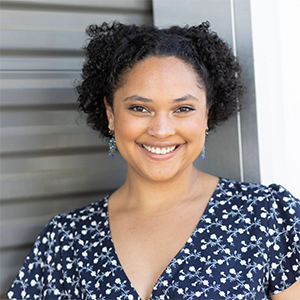I got to present at the United Nations General Assembly, but key voices were missing
“How is this my life?” I kept asking myself that as I prepared for meetings and events at the United Nations General Assembly (UNGA) last month. It was my first time attending. Once there, it felt surreal to be surrounded by world leaders and changemakers. Everyone came together to discuss some of the most pressing issues of our time.
It was a dream come true. But I found myself grappling with a palpable cognitive dissonance. Many people around the world who actually have the most at stake in these conversations were not among the attendees.
A promising start: some youth voices at UNGA
This year, at the Summit of the Future and UNGA, there were steps in the right direction. Young leaders like Emmanuella from Ghana spoke up for children’s rights. It was heartening to see young advocates provided the forum to raise their voices. I was inspired to see them pushing back against policies that overlook their needs and proposing solutions rooted in their lived experiences. But the reality is that too many are still excluded. We cannot talk about solving global poverty without looking to those living in poverty as leaders.
The role of youth as leaders has long resonated with me. I felt honored to raise these points when I spoke at the event “Addressing Anemia to Nourish Equality”.
My remarks on anemia highlighted the role affected girls and women must play
Anemia affects one in three women of reproductive age. It occurs when the blood does not have enough healthy red blood cells and protein to transport oxygen throughout the body. Anemia is particularly harmful to women and children. It increases the risk of early labor and infant death in pregnant people. Anyone with anemia is at higher risk for infections. It also causes fatigue and reduces cognitive function. Anemia robs nearly two billion people of their potential to fully engage at school and work.
Women and girls bear the brunt of anemia worldwide — they must be at the center of efforts to find solutions. Engaging women and girls in decision-making and program design is key to driving sustainable change. They are the experts in what truly works and what doesn’t.
As we take steps toward better centering affected communities and youth, we must avoid tokenization
At the “Addressing Anemia” event, I found myself in a room full of nutrition leaders from UNICEF, the World Health Organization (WHO), and world governments. I spoke about the importance of working with youth to address anemia. I also shared about the work that the Scaling Up Nutrition Civil Society Network National Youth Coordinators are doing to hold dialogues with the most marginalized folks in their communities. The solutions they generate get right at the real-life barriers to quality nutrition. The young leaders then advocate to local decision makers for these solutions.
This shift toward inclusion is promising. But, there’s still so much to do to ensure we center to voices of young people and the most affected communities. We must not merely tokenize them but look to them as changemakers. They can’t just have seats at the table but also the resources and power to shape the agenda.
The issues I discussed and presented about at UNGA are the daily reality for millions
Leaving UNGA, I felt a mix of inspiration and resolve. There’s no question that meaningful progress is underway, but we must push for deeper representation. Poverty isn’t just an abstract issue for policy debate. It’s a lived experience for millions who still must fight to be heard. We all have a part to play in sharing power and unlocking funding to amplify all voices.
For me, the challenge ahead is to ensure that the sleek corridors of power truly center the needs and voices of those at the margins.
